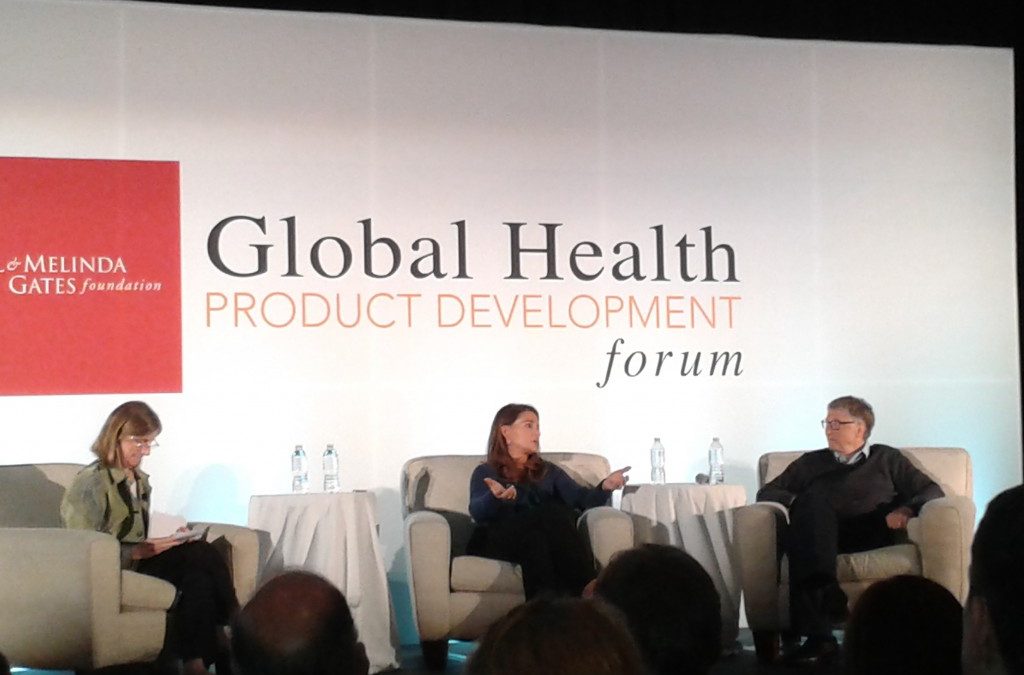My colleague from Berlin, Katharina and I spent four days last week in lovely Seattle for the Product Development Forum, organised by the Bill and Melinda Gates Foundation (BMGF). It was an intense and packed event with 500 of the most knowledgeable people around the world in the field of Global Health R&D.
The event was a great opportunity to meet some of our partners working on poverty-related and neglected tropical diseases (PRNDs), researchers and academics, but also Product Development Partnerships (PDPs).
PDPs are not-for-profit public – private partnerships developing new health solutions for PRNDs. These researchers dedicate their career to the search for new and improved diagnostics, drugs, treatment, vaccines and prevention for diseases that affect poor populations in the world.
One of these partnerships has made a fantastic breakthrough in fighting TB, which was announced at the forum. The TB Alliance has been working on a new drug combination called “PaMZ” to treat TB and multi-drug resistant TB. The phase 2 of clinical trials has shown extremely promising results. With this new treatment, only 360 pills would be needed instead of 14, 000 pills and intrusive and painful injections for only four to six months.  Moreover, the costs would be 99% cheaper. The BMGF will support the phase 3 for the test on this new drug together with other funders to accelerate progress and potentially have a new treatment this year.
Moreover, the costs would be 99% cheaper. The BMGF will support the phase 3 for the test on this new drug together with other funders to accelerate progress and potentially have a new treatment this year.
We also had the chance to hear Melinda Gates‘ vision on global Health R&D during her first attendance at the PD forum. Melinda has focused her work in recent years on family planning, shocked that 222 million women in low and middle income countries who want to space or avoid pregnancy still remain without access to family planning.
As Melinda said at the forum, family planning keeps women healthy, babies healthy, help reduce the number of unintended pregnancies and abortion in the world.
However, there have not been a lot of innovations in the last decade.
 Contraceptive solutions are not always adapted and accepted by the women’s and adolescents’ needs. For instance, with contraceptive injectables, women have had to travel – walking sometimes for hours – to the closest clinic to get injections by a health worker every three month. Often, they are not able to renew their injection, because of work, conditions, responsibility over their children.
Contraceptive solutions are not always adapted and accepted by the women’s and adolescents’ needs. For instance, with contraceptive injectables, women have had to travel – walking sometimes for hours – to the closest clinic to get injections by a health worker every three month. Often, they are not able to renew their injection, because of work, conditions, responsibility over their children.
To try to address this, R&D has been invested to improve implants: the latest technology involves a longer-acting simple implant easy to inject under the skin, even by the woman or adolescent by herself.
At the forum, Melinda called for future efforts like this to help thousands of women and adolescents around the world access modern family planning. Finally, one clear take-away message from Melinda also is to put the end-user at the centre of the product development so that does not only solve a public health issue but also answers a personal human need.
The community now faces another challenge: how to innovate not only on diagnostic, drugs, treatment, prevention and control methods but also along the chain to ensure supply and demand.

